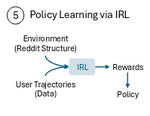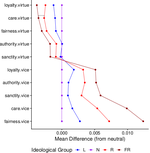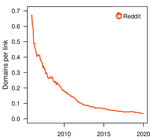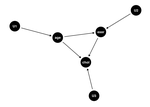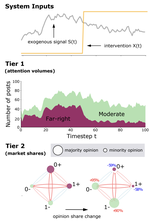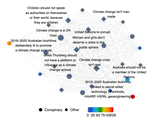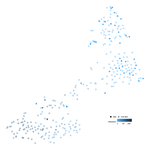Information spread, influence and attention
We build theoretical models to investigate how content gets online attention, who adopts it, and who can influence the process.
Some Reddit users just love to disagree, new AI-powered troll-spotting algorithm finds
Our article from the The Conversation from our paper presented at WWW'25.
Detecting extreme ideologies in shifting landscapes
Last November 2022, we presented to the Defence Human Sciences Symposium 2022 our novel ideology detection pipeline. In this post, we …
We spent six years scouring billions of links, and found the web is both expanding and shrinking
More than a quarter of a century since the first commercial use of the online world, its growth is now slowing down in some key …
Causal Inference: A basic taster
An introduction to the core motivation, underlying theory and practical methodology of causal inference through examples.
evently: simulation, fitting of Hawkes processes
We introduce
evently, an R package designed for simulating and fitting the Hawkes processes and the HawkesN processes.